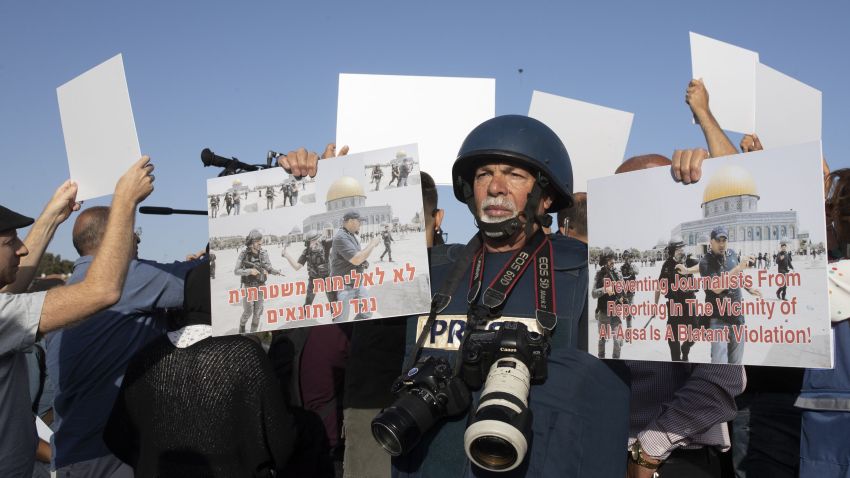The killing of Palestinian journalist Shireen Abu Akleh by the Israeli military in May turned the spotlight on the increasingly draconian restrictions imposed by Israel on Palestinian media, the freedom of movement of Palestinian journalists and the free flow of information, all of which have been exacerbating a conflict defined by asymmetric power relations for decades. Against the backdrop of rising tensions and violence in parts of the occupied West Bank, such severe constraints do nothing to help ensure Israel’s democratic image ahead of the upcoming round of parliamentary elections taking place on Nov. 1.
Sadly, Abu Akleh was not the first, or possibly the last, Palestinian journalist to be attacked and killed. While her death has been widely reported and denounced internationally and regionally, there has been little international media and public attention paid to the broader problem of intimidation, threats and targeting faced by Palestinian journalists. According to a report by the International Federation of Journalists, in the first half of 2022, the Israeli army and security forces were responsible for at least 479 violations of media and journalists’ rights in Palestine, pointing to “a clear attempt by Israel to silence media reporting on the ground.”
Such attacks have been largely ignored, as have other forms of human rights violations—arrests, destruction of equipment and physical abuse—carried out routinely by the Israeli security apparatus, but also by the security forces of the Palestinian Authority, or PA, which controls part of the West Bank, and by Hamas, which controls the Gaza Strip. Websites critical of the PA have been shut down and journalists arrested as part of a battle for legitimacy and control between the PA and its political opponents. Meanwhile, in the Gaza Strip, journalists are often subjected to threats by both Israeli military offensives and Hamas policies that target journalists suspected of collaborating with Israel.

